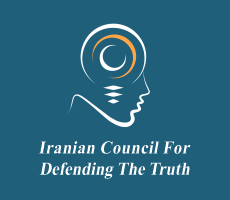Two key points should be considered when we are talking about the recent unrest in West Asia, as neglecting each of them can bring about destructive costs for the nation-states. Although the demands in both countries have to be taken to account by their governments, neglecting a third force which is incompatible with their national interests will lead to irreparable cost.
Iraq has been faced with many crises in the political, economic and social spheres since fall of Saddam Hussein 2003. Perhaps one of these crises is enough to lead to the collapse of the political system in another country. In fact, the situation in Iraq can be described as a domestic stabilization process after the security challenge caused by ISIS. There is no doubt that the Iraqi people have real demands and these demands must be fulfilled in the frame of the Iraqi Constitution. Meanwhile, Iraqi Shiite authority Ayatollah Sistani also has endorsed these demands and their fulfillment by current Iraqi government.
As the Middle Eastern thermometer, Lebanon is experiencing other situation that is slightly different from Iraq. The protests in the country go back to the planned taxes on online phone calls such as WhatsApp. However, after a while, the Lebanese went deeper and they called for some government reforms. In this case, there is no doubt that the demands must be considered appropriately within the frame of the law.
As discussed, if we accept that the demands of the people in both countries, each of which are democratically structured, must be addressed, we must not overlook a tangible reality in West Asia. West Asia has always been seen as a strategic area by foreign powers because its developments have the potentials to play a crucial role in international politics. In other words, when we talk about developments in West Asia, the role of foreign destructive forces should not be ignored.
Some analysts and foreign policy experts insist that Iraq and Lebanon are “practicing democracy” in their countries! What has been overlooked by these analysts is the presence of a third force incompatible with the interests of the states and nations of the region.
Even though the yellow vests protests have failed to fulfill their demands after weeks of demonstrations in France, perhaps one of the most democratic countries, but it should be noted that there is no strong incompatible third force seeking profit. In fact, France is moving in the liberal-capitalism mainstream, and neither the other capitalist countries nor the mainstream media like to tarnish the image of this ruling system.
The situation will be different for any other country that chooses a different solution other than accepting capitalism. The situation is significantly different for countries such as Iraq and Lebanon because they adopted a confrontational stance against capitalism. This incompatible third force tries to show off itself in the line of the social demands, but after a while imposes itself and its desires to these social movements. At the end of the day, this force manipulates the direction of the demands. During the recent protests in Iraq and Lebanon, the third force was a relatively strong coalition, including Arab regimes, the United States, terrorist groups, Israel, members of some dissolved parties like he Baath party and internal mercenaries.
Another historical lesson to bear in mind is that in the Arab Spring, this incompatible third force succeeded to eliminate anti-arrogance approaches and gradually took the course of revolutions to the other way. This is the lesson that the countries of the Islamic world must keep well in mind. The revolutions in Egypt, Tunisia and Libya failed since they failed to contain and dominate over this hidden force.

